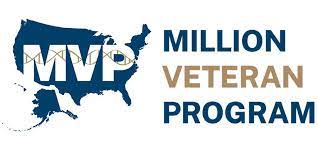
Danielle Rasooly, PhD, a research associate in the Brigham and Women’s Department of Medicine in Boston and an investigator for the VA’s Million Veteran Program (MVP)
BOSTON — Heart failure affects nearly 6.2 million adults in the United States and disproportionately impacts veterans. The long-term prognosis of heart failure is poor, with a five-year mortality rate of 50%, raising the demand for new therapeutic opportunities.
A new study led by VA researchers has identified 18 previously unreported genetic mutations associated with heart failure, as well as seven specific proteins that could potentially be therapeutic targets to prevent heart failure’s onset.
“Human genetics equips us with the power to identify new drug targets, which can help us bring safe and effective therapeutics to patients more quickly,” said Danielle Rasooly, PhD, a research associate in the Brigham and Women’s Department of Medicine in Boston and an investigator for the VA’s Million Veteran Program (MVP), a national effort launched in 2011 to examine the long-term health outcomes of U.S. veterans. “Drug targets supported by human genetics evidence are more than twice as likely to be approved for use as those without it.”
Although several smaller studies had identified genetic risk factors for heart disease, the new study analyzed data on over 1.2 million individuals from two established genomic research programs—the MVP and the Heart Failure Molecular Epidemiology for Therapeutic Targets (HERMES) consortium, which includes data from patients across several European countries. 1
Genomewide association studies (GWAS) such as those are used to associate differences in our DNA with disease, said Rasooly, who led the study. “By using such a large dataset, we enhance our power for discovery of genes and causal pathways that may be useful for the clinical translation of findings.”
With the identification of 39 genetic mutations (including the 18 that were previously unreported) researchers then used Mendelian randomization—an analytical framework for determining the causal role of an exposure (i.e., a protein) on a disease outcome (i.e., heart failure)—to determine which gene correlations are causal and which were not, Rasooly said.
 “Mandelian randomization uses the innate genetic differences that we have among us—such as an inborn susceptibility to heart failure—which are fixed at conception and which remain unchanged throughout our lifetime, to mimic a randomized controlled trial,” Rasooly explained. “The random assortment of genes at conception mimics a randomized controlled trial because the random assortment of genes is analogous to the randomized assignment of treatments in a randomized controlled trial,” she continued. “For example, at conception, some of us inherit some genes that make us more likely to have higher levels of a particular protein. If this protein is protective against heart failure, then people with genes that cause an increase in this protein should have lower rates of heart failure; meaning that a therapeutic agent that increases this protein may be a worthwhile target for drug development purposes.”
“Mandelian randomization uses the innate genetic differences that we have among us—such as an inborn susceptibility to heart failure—which are fixed at conception and which remain unchanged throughout our lifetime, to mimic a randomized controlled trial,” Rasooly explained. “The random assortment of genes at conception mimics a randomized controlled trial because the random assortment of genes is analogous to the randomized assignment of treatments in a randomized controlled trial,” she continued. “For example, at conception, some of us inherit some genes that make us more likely to have higher levels of a particular protein. If this protein is protective against heart failure, then people with genes that cause an increase in this protein should have lower rates of heart failure; meaning that a therapeutic agent that increases this protein may be a worthwhile target for drug development purposes.”
Potential Drug Targets
Using the framework the researchers were able to identify seven genes (CAMK2D, PRKD1, PRKD3, MAPK3, TNFSF12, APOC3 and NAE) as potential drug targets for the primary prevention of heart failure. They then integrated multiple data sources spanning cardiac magnetic resonance imaging (MRI) data, heart failure risk factor traits, and -omics to investigate the biological credibility of their findings. The finding, she said, provides a clear avenue for the translation of genomic findings into clinical care for the primary prevention of heart failure.
Rasooly said her own family history in cardiovascular and cardiometabolic diseases has fueled her drive for utilizing human genetics for drug discovery for these conditions, and importantly, for translating this knowledge into clinical practice. “Large-scale genetics studies can provide clues about the causal relationships between proteins or other biomarkers with disease, and have the power to discover novel leads for genetics-driven drug discovery,” she said. “Human genetics can inform future drug development efforts and can identify existing drugs that may be repurposed for use in different diseases.
“Our approach provides a route for enhancing drug development success rates. This is very important because there is an overall failure rate of over 95% in drug development,” she said.
“Our study provides a framework for advancing drug discovery utilizing the power of human genetics,” Rasooly said. “Advances in genotyping technologies have yielded a remarkable number of discoveries linking genetics to disease. Now, our goal is to translate these discoveries into clinical practice. The approaches we provide in this study highlight the potential of human genetics in accelerating the discovery of novel therapeutics. Continued investment to scale these efforts is essential to unleash the full power of the human genome.”
- Rasooly D, Peloso GM, Pereira AC, Dashti H, et. al. VA Million Veteran Program; Langenberg C, Sun YV, Joseph J, Casas JP. Genome-wide association analysis and Mendelian randomization proteomics identify drug targets for heart failure. Nat Commun. 2023 Jul 10;14(1):3826. doi: 10.1038/s41467-023-39253-3. PMID: 37429843; PMCID: PMC10333277.

